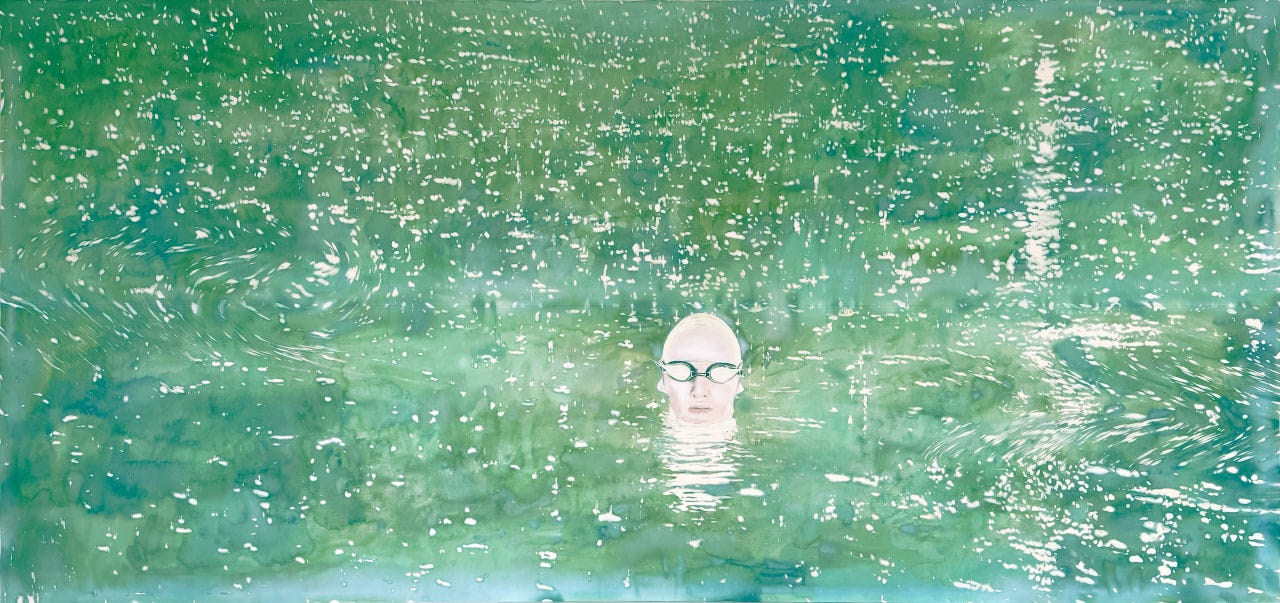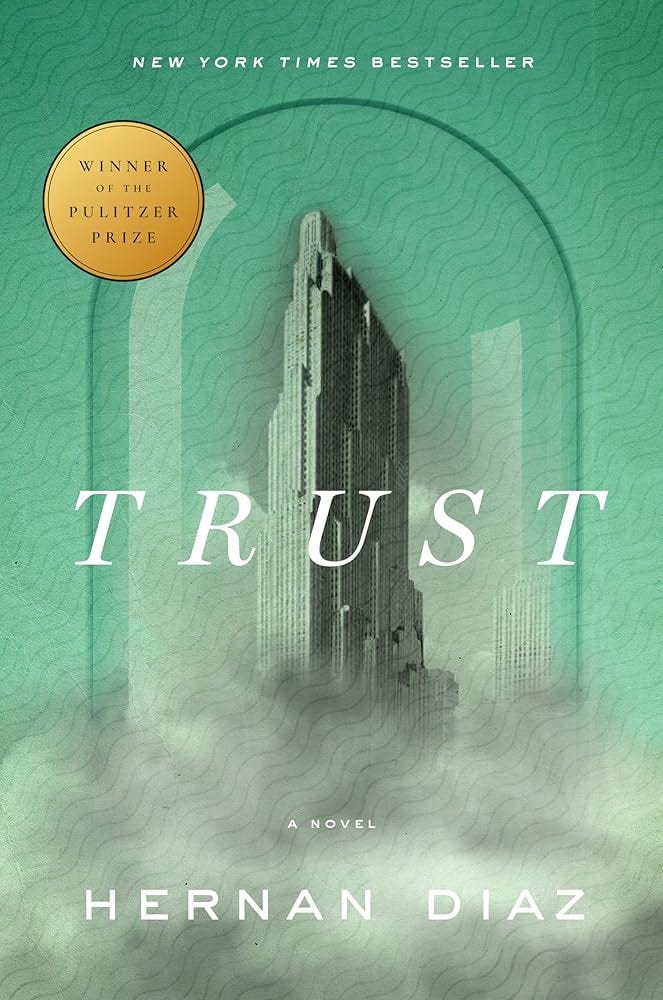Spring in London: art, a book, and a bit of Meghan Markle
I’m back in London, and it finally feels like spring—well, with occasional clouds, of course. Today’s newsletter covers three essentials: art, a book, and Meghan Markle (because why not?).
Let’s start with art.
On March 20, Frieze’s No.9 Cork Street will host Dima Rebus’ solo exhibition “Floaters”, presented by Artwin Gallery with support from Kit4Kid. The show is curated by British curator Ben Broom.
Rebus, the mind behind Underground Aquarellka Universe, explores human behavioral patterns and everyday norms through his work. His signature technique? He paints with rainwater collected from around the world. The chemical composition of the water interacts with pigments, shaping textures that quite literally capture the atmosphere of a place and time. Depending on pH levels and mineral content, pigments behave differently, making each piece unique. The exhibition’s title, Floaters, references ophthalmology—those drifting spots in our vision that come and go, much like memories or fleeting perceptions.
It’s always exciting to see Russian artists gain visibility in the UK. After Artwin’s success with Vladimir Chernyshov last spring, this marks another step toward international recognition.
I watched the first episode of With Love, Meghan and I can’t stay silent. Because Meghan Markle has carefully crafted herself into a pop culture character. Literally.
She whispers to bees, makes bath salts with ribbons, arranges bedside flower bouquets, and hand-pours her own candles. It’s not a life—it’s a Pinterest lifestyle slipping into absurdist kitchen theatre.
Cooking is its own thriller. Everything is made exclusively in Le Creuset (sponsorship or lifestyle choice?). Meghan looks like she’s holding a knife for the first time—confirmed by the chefs lurking in the background. This isn’t the chaotic charm of someone like Julia Child or even Julia Vysotskaya, who could casually set her entire studio on fire. This is more like Teletubbies got into some illicit substances before filming.
Then come the friends, and Meghan gives them The Duchess’s Guide to Domestic Bliss. Here’s “friend” Daniel, a man of forbidden orientation in Russia, who has apparently arrived genuinely eager to learn how to make candles and pasta. Meanwhile, let’s play a drinking game—take a shot every time Meghan says Suits.
Then there’s the caring segment: Meghan makes Daniel tea with honey, lemon, ginger, and… pepper. Small issue—he’s allergic. The peanut butter dog biscuits were also a moment.
Is there humor? Sure. Comparing pasta to Beyoncé’s Cozy (because… it’s also cozy). Referring to bees as busy bees.
Do we believe this show? About as much as we believe Meghan didn’t know who Prince Harry was before their first date. And no, I refuse to believe that any mentally stable adult genuinely wants to spend their free time making candles as a social activity.
Final verdict: This is a hate-watch, but deep down, it’s pure envy. I, too, want this lifestyle. Or at least a sleepover at her house, where she makes me a bath, truffle popcorn, and an allergenic tea with a view of California. Preferably, while Netflix pays me millions for the experience.
Swallowed (there’s no other way to put it) Trust by Hernan Diaz – his second novel, now Pulitzer-winning.
The book is built like a hall of mirrors: four versions of the same story, each slightly (or not so slightly) distorting the previous one.
The narrative shifts four times, making it a novel within a novel: a fictionalized account of a New York power couple—a tragedy. An unfinished, egotistical autobiography called My Life—a comedy. A typist’s account, drifting through her own daydreams—a biography-biography. And finally, the diary of his wife, a woman dying in Switzerland, recording her last days. The morphine frequently mentioned in the book doesn’t cloud the fact that Mildred is brilliant, possibly a genius. Yet men seem particularly eager to rewrite her identity after her death.
For me, this book is about revenge and ego—perhaps Andrew was trying to tarnish his wife's legacy, painting her as a naive philanthropist who arranged bouquets inspired by still-life paintings. Meanwhile, lost in these four perspectives, we no longer know how she actually died, whether she really narrated detective stories over dinner while the food got cold, or if the main character was ever truly as brilliant as he thought.
The novel plays a lot with the idea of fiction of money. Everything in the world is money, and the protagonist’s house—an embodiment of America—is its temple. Money is every product ever made. Money is the ultimate illusion, "bending and straightening reality." Power belongs to those who control the narrative.
There’s the 1929 Wall Street crash, manipulation, accusations, power, and truth as an instrument. The stock market interests the protagonist more than his wife. Or does it? He writes his own version of events, but as they say, denial is just another form of confirmation.
The Guardian summed it up well: if truth is your goal, you might be better off relying on a novelist than a banker.
Did it change my worldview? No. But I’m keeping it on my shelf.




